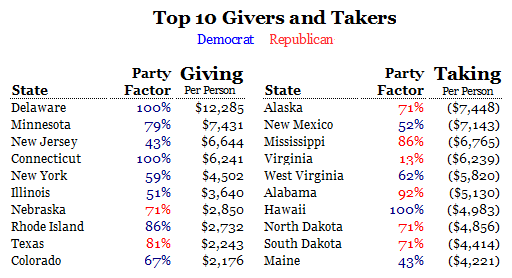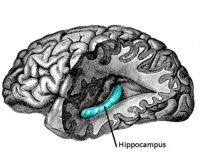Our desire for a particular political ideology
is highly driven by our self esteem.
 |
| He is just better than everyone else |
Those who think they are better than every one
else tend to want no holds barred competition. Those who are less sure
of themselves want to be apart of a group.
From a political perspective, timid humans
trend toward communism while egocentric people trend toward anarchy.
Communists tend to be altruistic and
Libertarians tend to be selfish.
It is more dangerous on the norm to be
surrounded by Libertarians than Communists.
The optimal utility for society will most
probably be a mixture of these two extremes
Thought Experiment
Pretend for a moment you secretly think you
are better than everyone else. Your natural talents, current resources, and/or
knowledge make you a better human being than most of the people around you.
What kind of political system/structure would
you want to exist in?
a) everyone on a big team
b) lots of small
teams
c) every man for
himself
Now pretend that you think your just
normal/average, a little bit less educated, do not have so many resources and/or
are lacking in some natural talents.
Look at that list again. What kind of
political system/structure would you want to exist in?
People who think they have an advantage will
be less likely to want to be on a team. They tend to believe their
personal merit will allow them to do better in a competitive situation on their
own. Given the chance to compete one-on-one, they think they will win.
People who think they are less capable want to
have the infrastructure of a team. They hope their lack of personal merit
will be supported by others who have different strengths and weaknesses.
Given the chance to be on a team, they think they will win.
 |
| Safety in Numbers |
We Are Together
Communism and Socialism are examples of
society as a big team.
Examine from the lens of self esteem,
"communism" is about spreading all the skills evenly so no one has
unfair advantage. All skills are normalized in value toward the benefit
of the team.
From this perspective "socialism"
can be seen as a team which spreads risk but is configured for more personal advantage to
be allowed, as long as it benefits all.
 |
| The Uber Man |
Cream Rise On Up
On the other end of the spectrum we have
Anarchism and Libertarianism as trending individualistic political
structures.
“Anarchy” systems are generally focused on
individuals, have minimal formal rules and eschew systematized political
teams.
While allowing for
more interconnectedness through transactional systems,
"libertarianism" is also very focus on individual merit and
achievement.
A fundamental part of both these theories is
that the best/fittest individuals should be able to rise to positions of
strength and power.
We Can
Do It
In between these two extremes of anarchy and
communism lie a great many flavors of political formulation. Oligarchy,
monarchy, democratic, republic, federalism and others are based on larger or
smaller teams of people working in concert and competition toward an end.
These in between political structures for this
discussion are grouped together because they share in common a limited interdependence
and a since of shared risk and reward among group members. There may be a
supreme leader or not. There may be regular transfer of power or not.
The in between political structures are
different means for those with more perceived merit to have some more
independence of action and those of less perceived merit to be more
controlled. All attempt to setup a situation that allows the cream to
rise to the top for the good of many.
Analysis
The link between political affinity and self
esteem is not an absolute. It is a trend.
If you take any one individual who thinks to
become a communist, they may not have low self esteem. In large groups
however, the trend toward lower self esteem and desire for being the member of
a protective grouping is clear.
Likewise, not every anarchists and
libertarians will be selfish ego-maniacs. Like with many fluid natural systems,
the attraction to self aggrandizement will trend more people in that direction.
There is clear data about self esteem and team
participation. There was no clear
quantifiable data that I could find showing the exact distribution of self
esteem to political persuasion.
My understanding is that self esteem is self
reported and the results are skewed in most surveys about
political persuasion because of the nature of question being asked.
My hypothesis is that we would look for bell
curve like distribution models of self esteem based on group
dependency/inter-dependency beliefs in direct correspondence with
political persuasion.
Individuals who are surrounded
by altruistic actors will have a competitive advantage over those
surrounded by the selfish actors.
Gaming theory studies on competitive versus
cooperative behavior patterns in nature show a clear advantage toward the
cooperative individual’s survival.
There are some systems that thrive on
pure competition; however their ecological stability is much harder to
maintain making them rare and often fragile ecosystems.
Examples of this stability of cooperation
exist within in plants and individual cells. The cell groups that
cooperate in a plant have proven very successful evolutionary. Even
individual cell organisms are collections of parts in cooperation.
Life itself evolves to those systems of cooperators because of the
specific advantages spread risk and shared power brings.
Conclusion
Libertarians trend to have more self worth,
self regard, self respect, self integrity and be more self centered and
selfish.
Communist trend to have low self worth, self
regard, self respect, self integrity and be more group oriented and selfless.
Any one individual who is surrounded by self
centered and selfish people will be more apt to fail.
Any one individual who is surrounded by
selfless and altruistic people will be more apt to succeed.
Notes
Here are some relevant papers worth reading if
you’re interested in exploring these ideas more deeply
































